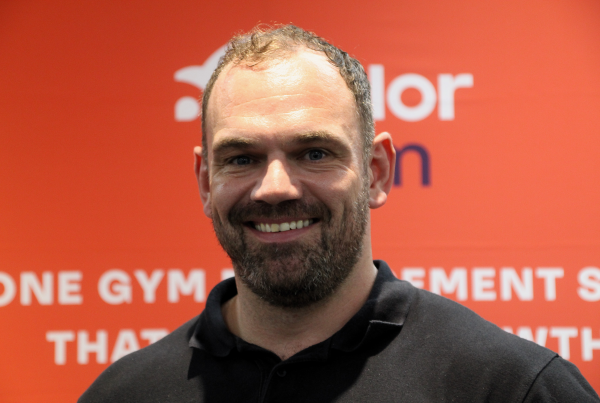ukactive CEO Huw Edwards discusses the UK Health & Fitness Market Report 2025, published by ukactive in collaboration with 4GLOBAL and Sport England, with analysis from Deloitte.
Following his big announcement on the abolition of NHS England, the Prime Minister sat down with the Institute for Government to discuss the changes and the motivations behind them. The PM revealed a sense of frustration at the pace of change and that he’s someone who wants “to get things done”. He also wants his Ministers to feel empowered to drive change at speed and in terms of delivery he acknowledged that there was a need to “add a bit of oomph” into the Number 10 leadership machine on this agenda.
If the PM wants a partner on that journey to add “oomph” he could find no better companion than the thousands of gyms, pools, and leisure centres that deliver “oomph” to their millions of daily users. That’s in their very DNA: to drive, with energy and dynamism, the quest to help make this nation stronger.
Our nation’s gyms, pools, and leisure centres are currently playing a fundamental role in supporting the physical, mental, and social wellbeing of millions of people across all ages and backgrounds. However, there is much more potential to be unlocked. Through supporting the greater expansion of facilities and services in communities, millions more people can be engaged, and in turn help take pressure off the NHS and help drive greater economic growth. This will provide solutions for two of the big challenges the Government is facing.
Indeed, today we published The UK Health and Fitness Market report 2025, in collaboration with 4GLOBAL and Sport England, and with analysis from Deloitte, which reinforces this in the strongest possible way. This report shows how it is the perfect time for the Prime Minister and his Ministerial team, to deepen this partnership with our sector.
Firstly, when it comes to economic growth, our government is desperately seeking sustained economic growth, and we are a sector that is growing.
Our sites are growing, our members are growing, and our income is growing.
Today’s report shows that membership growth is more than one in every six within the UK population – 11.5 million people – and revenue across the sector has risen from £5.2bn in 2023 to £5.7bn in 2024 – an impressive 8.8% increase. All of this has been achieved against a difficult economic backdrop.
So, why is this? The answer lies in changes to the public’s attitude to their health and wellbeing. More and more people are recognising the benefits of being more active and prioritising their time and money in pursuit of their own physical and mental health. To support this, ukactive’s Consumer Engagement research shows that Britons are spending three times more on their health and fitness than they are on drinking socially (15% vs 5%), with options such as eating out (9%) appearing lower on people’s spending priorities, suggesting that many are choosing to invest their money in gym memberships for their long-term health and wellbeing.
We know the Government needs quick wins and we are growing, we are attracting inward investment, we are expanding the range of employment opportunities for people at all levels of attainment and ability. We are running with, rather than against, the public grain.
Secondly, if economic growth is the number one priority, improving national health is fundamental to this. If we can help people back to good health, then we can help them back to work.
The recent debate on welfare reform placed insufficient focus on how we improve our national health, with ill health running like a fault line through our communities.
Statistics show that workplace sickness costs the UK £138bn, with poor mental health among employee’s costing UK employers between £42bn-£45bn each year.
Furthermore, we have approaching three million people on long-term sick leave, and around 7.5 million people on NHS waiting lists. Getting these people healthy through physical activity, and building a healthier nation, is not only an option, but a preventative measure that this Government should utilise.
Unless we address our poor national health, sustained economic growth will remain an aspiration. However, the UK’s gyms, pools, and leisure centres can provide solutions for addressing and making notable improvements to our national health in this Parliament.
The sector’s facilities contribute to impact shown by Sport England’s research with Sheffield Hallam University which found that the industry is providing a return of investment of over £4 for every £1 spent. And its latest social value calculations show the sector delivering overall returns to society worth £100bn a year. Their programmes and services can have a direct, positive impact on issues ranging from musculoskeletal (MSK) issues, obesity, cardiovascular disease, and mental health and ease immediate pressure on NHS services.
Bridging back to the welfare debate, our sector is uniquely based to support young people back into work. The sector is an important employer with over 600,000 people and around 30% of this workforce are made up of 16- to 24-year-olds. Our sector can be a champion for addressing economic inactivity amongst this age group given the connections this age group have with the sector.
We want this Government to be decisive in its decision making and empower our sector to drive change through greater economic growth and health improvements in this parliament.
This is a golden opportunity for the Government to meet the public and the sector where they are on this agenda, fully engage, and work together to build a better, stronger Britain.
To download the UK Health & Fitness Market report, click here.
The UK Health and Fitness Market report is sponsored by BLKBOX, Gladstone, Life Fitness/Hammer Strength, Matrix, Myzone and Technogym.

More People More Active More Often




